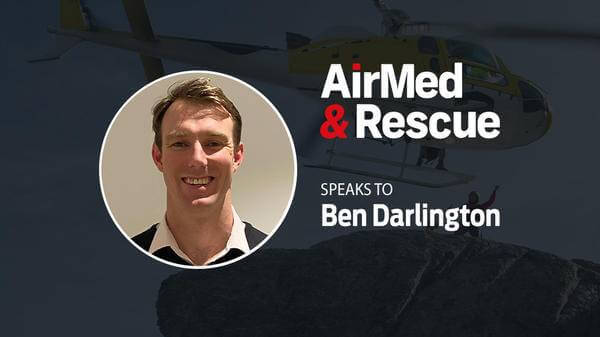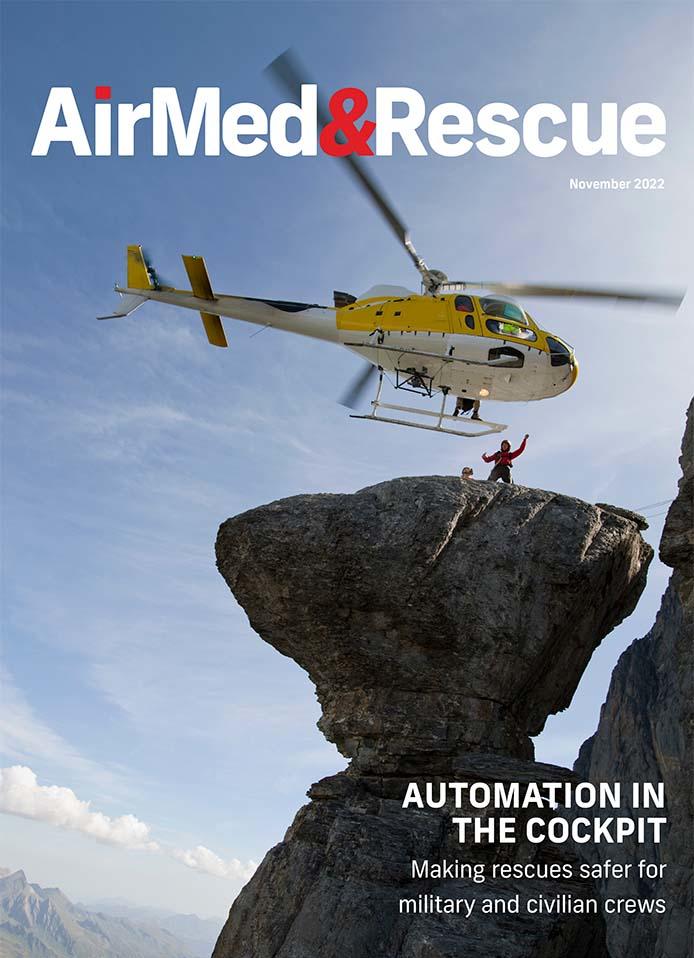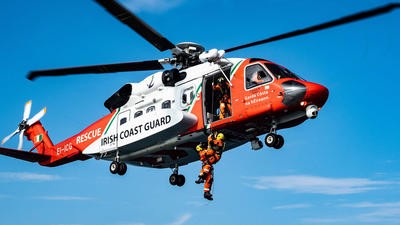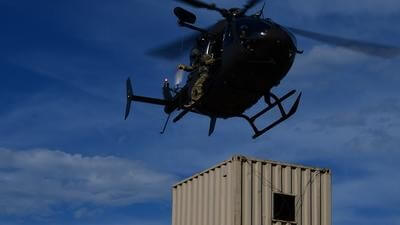Interview: Ben Darlington - EURORSA Rescue Swimmers Meet 2022

It’s a welcome return for the Rescue Swimmers Association (EURORSA) Meeting – and President Ben Darlington is promising an event filled with innovation and interesting discussion in Portugal
This is the sixth Rescue Swimmers’ Meeting to be held since the event’s launch in 2009, and the first following the Covid-19 pandemic. How does it feel to get the rescue swimming community together again?
It is sensational. The meetings are usually held every two years, with this one originally scheduled for May 2020. Previously, the last meeting was held in Iceland in 2018 – so it has been over four years since were all able to get together. Everyone is very excited.
This year’s theme is ‘operational longevity’. What does this mean from a EURORSA perspective?
The operational requirements of the rescue swimmer role can be very demanding physically, so we have a couple of interesting presentations for members that look at how swimmers can prepare themselves to train for the vocation, while minimising the risk of injury.
The first presentation is from a Portuguese Airforce Physical Therapist, looking at how Rescue Swimmers train and injury prevention. We also have one of our own members, Flight Paramedic Ben Meadley. who completed his PhD reasearch into, ‘The physiological demands of helicopter winch rescue in water and over land’. His study gives a great insight into the considerations when preparing for a career as a rescue swimmer.
Rescue swimmers’ mental as well as physical health is of primary importance – how will the event support this aspect?
Rescue swimmer work, like that in any emergency service, can be quite confronting. While a lot of hype surrounds being physically fit, mental fitness is vital, although sometimes overlooked.
The operational requirements of the rescue swimmer role can be very demanding physically
The second day of our meeting focuses specifically on these aspects. Once again, we have some very passionate speakers addressing our members. Lt. Cor. Pedro Piedade from the Portuguese Airforce will begin discussions by looking at what it takes to be a Rescue Swimmer from a psychological point of view. Next up is Sam Fielder, a rescue crewman from Australia, who was involved in two helicopter accidents and suffered serious injuries as a result. Sam showed tremendous resolve to recover from his physical injuries, but will speak quite candidly about the psychological challenges he faced returning to work – and how these mental injuries took far longer to heal than the physical ones.
We will also hear from Keith Carolan, a winchman from Ireland, who will talk about critical incident stress management and the importance of peer-to-peer support in workplace mental health.
Industry experts will also be present. Who have you partnered with this year to bring innovation and interaction?
We have been extremely fortunate to once again have fantastic partners supporting us at the meeting. Lifesaving System Corp (LSC) is our platinum partner, and our members will get the chance to have a look at the latest equipment from LSC in the lecture theatre and exhibition hall, as well as in the water, with interactive demonstrations planned for the pool.
Longstanding supporters Liteflite and Ursuit will attend as gold partners, along with Leonardo Helicopters. The Portuguese Air Force fly the 101 Merlin and 119 Koala, while Leonardo Helicopters has also organised for a Portuguese HEMS AW139. With a Leonardo Airframe from the small, medium and large class of helicopters present, it is going to be a great opportunity to see the various roles, configurations and capabilities across the Leonardo fleet.
New partners will also attend for the first time, while old friends return, with Collins Aerospace (Goodrich Hoist), Axnes, Iridium Waterproof Communication Systems, AirMed&Rescue, CHC, Globalsys, Helisafe and Airsafe.
What geographical opportunities does Portugal offer, when it comes to learning topics and the ability to perform both static and aerial demonstrations?
From a logistical perspective, Cascais is a relatively central location for all our members and partners to travel to. The Portuguese Airforce has the responsibility of one of the largest search and rescue regions on the planet, extending from Portugal into the Atlantic Ocean and around the Azore Islands. With frequent callouts, there is a wealth of experience and knowledge our hosts will be able to share with all attending.
While a lot of hype surrounds being physically fit, mental fitness is vital, although sometimes overlooked
While the Atlantic Coast not far from Cascais attracts huge swell at times, Cascais is somewhat protected with its southerly aspect, so we are looking forward to some open-water swims and demonstrations.
Finally, what are your plans for future meets?
In 2019, with the help of Ursuit and Liteflite, we were able to hold a practical SAR workshop at the Meriturva Maritime Safety Centre in Finland. It was fantastic, so we are certainly looking at another one of those in the off-year between events. With regards to our next meeting, Ireland and Cyprus have been raised as potential locations, so some great options for 2024!

November 2022
Issue
Cockpit automation heightens safety, the move by air medical providers to longer-range jets, the standardization of infectious disease patient transfers, and electronic communication in the Mediterranean Sea helping to aid refugee rescues
Kate McLaughlin
Kate McLaughlin is Senior Editor at Voyageur Publishing, and Editor of AirMed&Rescue

